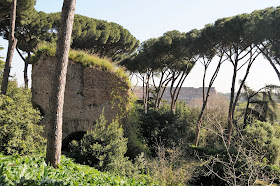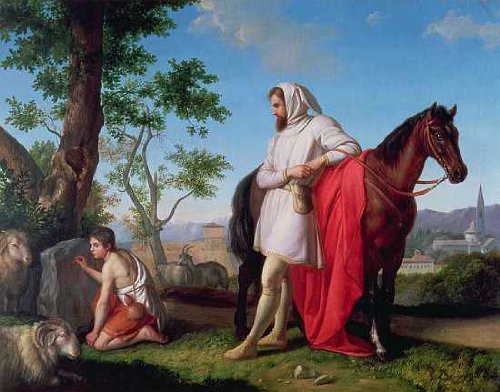The Colosseum, Rome
As Donald Hall notes in his introduction, James Wright's Italy was a literary place: the landscape of Catullus, Virgil and Ovid, of Goethe's Italian Journey, Keats and Shelley, and the American novelists - Henry James, Edith Wharton and William Dean Howells (who was 'the other literary figure born in Martins Ferry, Ohio'). Sometimes thoughts of Ohio comes to Wright when he writes about Italy. In the poem 'One Last Look at the Adige: Verona in the Rain', he imagines the Ohio river once looking something like the Adige, 'to the people who loved it / Long before I was born'. Verona was, for Wright, 'one of the earth's loveliest places' and I will begin and end my quotes there.
On a sunlit day its pink and white marbles glow from within, and they glow from within when it is raining.
- The Arena, Verona
In all directions below us were valleys whose villages were just beginning to appear out of the mist, a splinter of a church here, an olive grove there. It was a life in itself.
- San Gimignano
The fragrance of the water moves heavily and slowly with mussel shells and the sighs of drowned men. There is nothing so heavy with earth as the sea's breath and the breath of fresh wilderness, the camomilla fields along the shore.
- Bari
All over Apulia, currents of sea air snarl among winds from the landwise mountains. I can see thistle seeds tumbling everywhere, but I lose their pathways, they are so many.
- Apulia
At noon on a horizon the Colosseum poises in mid-flight, a crumbling moon of gibbous gold. It catches an ancient light, and gives form to that light.
- The Colosseum, Rome
It is only the evenings that give the city this shape of light; they make the darkness frail and they give substance to the light.
- Venice
Its shape holds so fine a balance between the ground and the sky that its very stones are a meeting and an intermingling of light and shadow. At noon, even the fierce Italian sunlight cannot force a glare out of the amphitheatre's gentleness.
- The Arena, Verona
There is one of Wright's prose poems written in Italy that I particularly like, 'The Lambs on the Boulder'. It is about Cimabue and the story of how he 'discovered' Giotto, then just a shepherd boy, scratching sketches of lambs on a rock. I always like the idea of treating such fanciful stories seriously (a different example of this impulse is Eric Rohmer's serious treatment of pastoral in The Romance of Astrea and Celadon). 'One of my idle wishes,' Wright says, 'is to find that field where Cimabue stood in the shade and watched the boy Giotto scratching his stone with his pebble.' He imagines the way Cimabue would have observed the boy:
I wonder how long Cimabue stood watching before he said anything. I'll bet he waited for a long time. He was Cimabue.
I wonder how long Giotto worked before he noticed that he was being watched. I'll bet he worked a long time. He was Giotto.
He probably paused every so often to take a drink of water and tend to the needs of his sheep, and then returned patiently to his patient boulder, before he heard over his shoulder in the twilight the courtesy of the Italian good evening from the countryside man who stood, certainly out of the little daylight left to the shepherd and his sheep alike.
I wonder where that boulder is. I wonder if the sweet faces of the lambs are still scratched on its sunlit side.
Gaetano Sabatelli, Cimabue and Giotto, 1846


No comments:
Post a Comment
Comments are moderated because even with these filters spam is more common than non-spam. Your comment therefore won't appear immediately. Sorry for the inconvenience - genuine comments are really welcome.